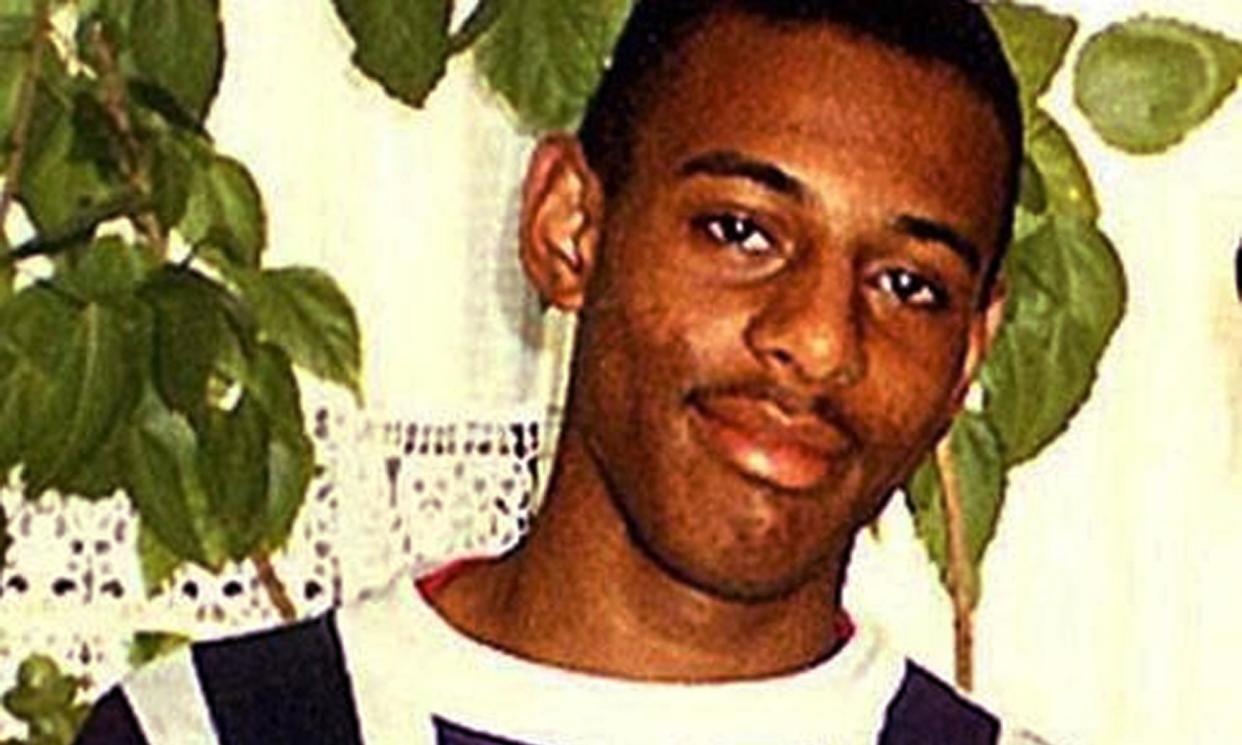Stephen Lawrence: Met’s decision to stop looking for killers to be reviewed

The Met police’s decision to shut down the hunt for the racist killers of Stephen Lawrence is to be reviewed, with police admitting “serious mistakes” are still being made in the case, the Guardian has learned.
At least three of the gang believed to have chased, surrounded and stabbed Stephen, who was 18, near a south-east London bus stop in April 1993 are still free, with two men convicted of his murder in 2012..
Scotland Yard closed the investigation in 2020, in a move opposed by Stephen’s parents, who fought the force over three decades after the original flawed investigation.
Now the Met has agreed to a review of the closure decision and other aspects of the case. Negotiations are still ongoing about the scope of the review and the Lawrences believe there is still a chance to bring the other alleged killers to justice.
A document written by the Met assistant commissioner Louisa Rolfe sets out the draft terms of reference for the review, saying it will focus on three themes, including: “The closure process undertaken in 2020 including (but not necessarily limited to) the effectiveness and reasonableness of the closure strategy, family liaison strategy and communications strategy.”
The document accepts the force is still making “serious mistakes” in the case: “Yet despite 31 years of apologies, learning and progress, serious mistakes in relation to the death of Stephen Lawrence are still being made.”
It adds: “Not only has Lady Lawrence been let down, once again, but for her and the wider community there remains the legitimate concern that, if, after all these years and all this attention, the Metropolitan police service still cannot be trusted when it comes to Stephen Lawrence what trust can they have in any of the previous investigations and reviews and, in particular, in the 2020 decision that all viable lines of inquiry had been exhausted.”
Expected to be on the review team is the former Met DCI Clive Driscoll, who led the investigation that secured murder convictions against Gary Dobson and David Norris in 2012.
Driscoll, whom Lady Lawrence described as the only police officer she trusts, left the Met in 2014 despite wanting to stay on and pursue promising leads that could lead to some or all of the remaining suspects being charged. They are Luke Knight and brothers, Neil and Jamie Acourt, who have always denied wrongdoing.
Driscoll told the Guardian: “In 2014 I felt there were opportunities to catch more of the killers. It may be that there are still opportunities.”
“It may be there were several things that were missed or not pursued.”
The document says the College of Policing, responsible for standards in policing, will oversee the review, which will have independent members, but warns they “are not to substitute their own decision-making for that of others; they are there to look at whether the decision-making of the Metropolitan police was reasonable and proportionate, in all the circumstances, and in accordance with the relevant national guidance and best practice applicable at the time”.
It notes the college cannot investigate criminal allegations and so “if viable lines of enquiry are identified, further consideration will need to be given as to which police force or law enforcement agency progresses these inquiries to conclusion”.
Stephen’s father, Neville Lawrence, said: “I would want a completely new police force to deal with the case, not the Met as I don’t trust them any more.
“It should be a complete reinvestigation. Clive’s investigation showed it was possible to get justice, when the Met said it was not possible.”
Dr Lawrence’s view clashes with what the Met has proposed, as the force opposes a complete reinvestigation, saying it would “require an investigative capacity beyond any single force, including the Metropolitan police”.
The document says: “UK policing has a finite major crime capacity and capability, which is over-stretched. A full re-investigation would draw limited resources away from current and historic murder investigations where there may be better evidential opportunities to bring other outstanding offenders to justice.”
The review followed a BBC News story naming a sixth suspect, Matthew White, who has now died. When the story surfaced, Lady Lawrence asked the Met for details about how they had handled that aspect of the saga, which the force failed to provide at the time, a failure for which commissioner Sir Mark Rowley has apologised.
With Stephen on the night of the murder was Duwayne Brooks, the surviving victim of the attack. Brooks said: “I want them to look at why the same suspects for the murder were not charged in relation to the assault on me.
“The draft shows no real learning from the Met since Macpherson and no real understanding of the issues. They still need to get to the bottom of the failures in the case.”

 Yahoo News
Yahoo News 
